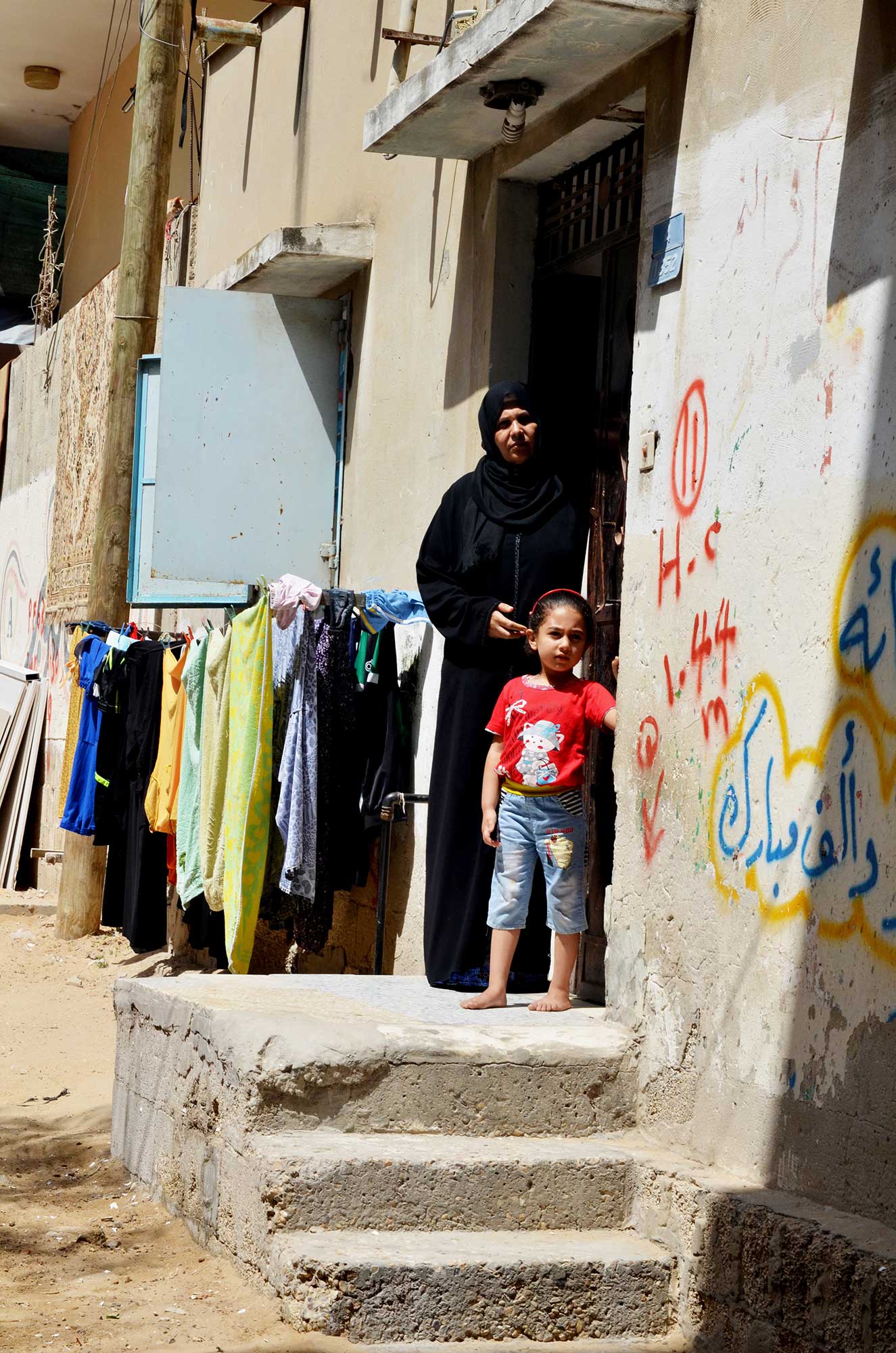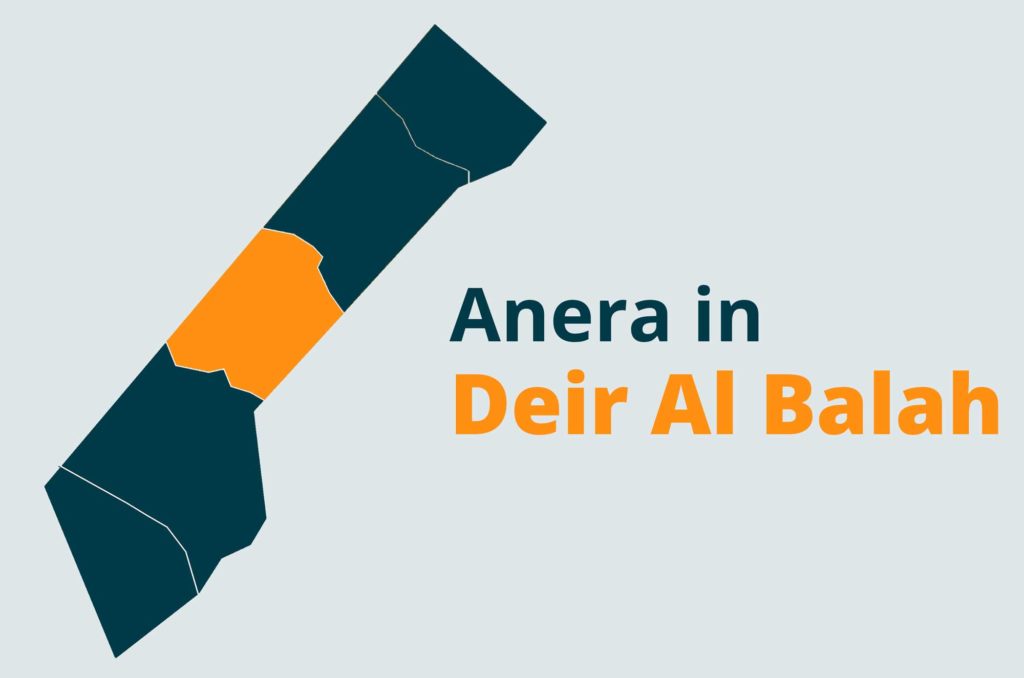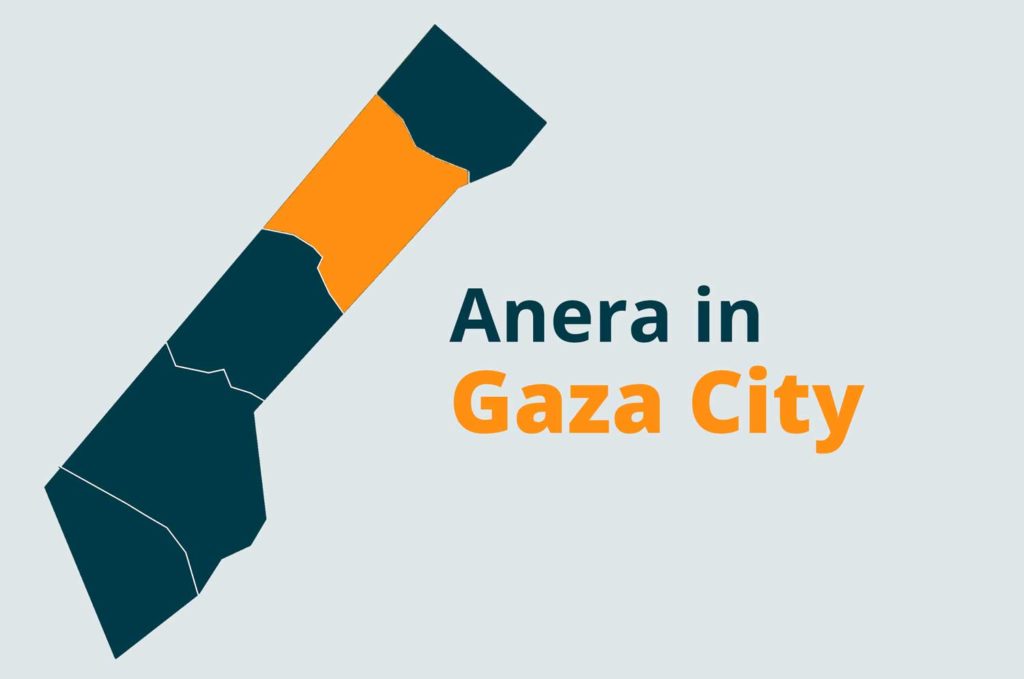Jun, 2016
Nothing pleases five-year-old Zayna more than spending vacations at her grandmother’s home in Gaza.
As soon as she finishes preschool and goes on summer break, she asks her parents’ permission to stay there. Zayna says that her grandmother never tires of her following and observing her household chores. She enjoys watching her grandmother washing dishes, doing laundry, tasting spices, and most of all, she loves when they play together with water bubbles.
In her kitchen, Najah pleasantly washes dishes and prepares a meal for her family. “Water is the source of life,” she says. “It’s very difficult to live in a home that lacks water for laundry and for washing.”
Due to very poor economic conditions, Najah cannot afford filling her two rooftop water tanks. Instead, she usually fills them partially at the cost 5-10 NIS – about $1-3 USD. Najah recalls a time she ran out of water for three days. “I kept the water tap turned on day and night looking patiently for a few drops of water to fill my empty tanks.”


The main causes of the Gaza water crisis in this neighborhood, located in the center of Gaza City, are the old and deteriorated water networks. The leaking pipes cause huge losses of water. The water supply in Gaza is contaminated by high levels of saline, chloride, and nitrates, which are triple the safe level that the World Health Organization (WHO) recommends. The increased salinization and pollution are caused by continued over-abstraction of water from the Coastal Aquifer Basin – the only source of water for 1.8 million people in Gaza.


Briny Water Supply in Gaza Destroys Pipes, Washing Machines
Walking a couple of blocks away from Najah’s home, there is a small repair shop where people bring their broken fans and washing machines on donkey carts to get them fixed. “I’ve observed that since our struggle with water began three years ago, I’ve received many broken washing machines,” said Saleh Hameed, the repair shop owner. He notes that washing machines make up a large portion of damaged items he receives per day because they are particularly susceptible to damage from saline and filthy water. Residents must pay from their limited budgets to get them working again.
“Availability of clean water is so limited for most Gazans,” says Saleh. “There are many times when we sleep next to our generators awaiting water. We hear, for example, that the pipelines are blocked with filth or are rusted. We fear the pipes could explode at any instant.”
With the new water connection provided by Anera, the residents of Saleh and Najah’s neighborhood now enjoy access to safe water around the clock. “It’s extremely hot now. Having water available is highly treasured in this community,” said Saleh. It also improves health and hygiene in the neighborhood.
“People from other areas where water is scarce bring their jerry cans and jugs to fill them with water from our places,” he says. “Hunting for water is nothing less than struggling for survival.”
With funds from Islamic Relief USA, Anera has implemented eight water and wastewater projects across Gaza that provide access to safe water, hygiene kits, and awareness sessions. Over the course of the next year, the project will directly improve water and sanitation systems for 50,000 Palestinians in Gaza.


